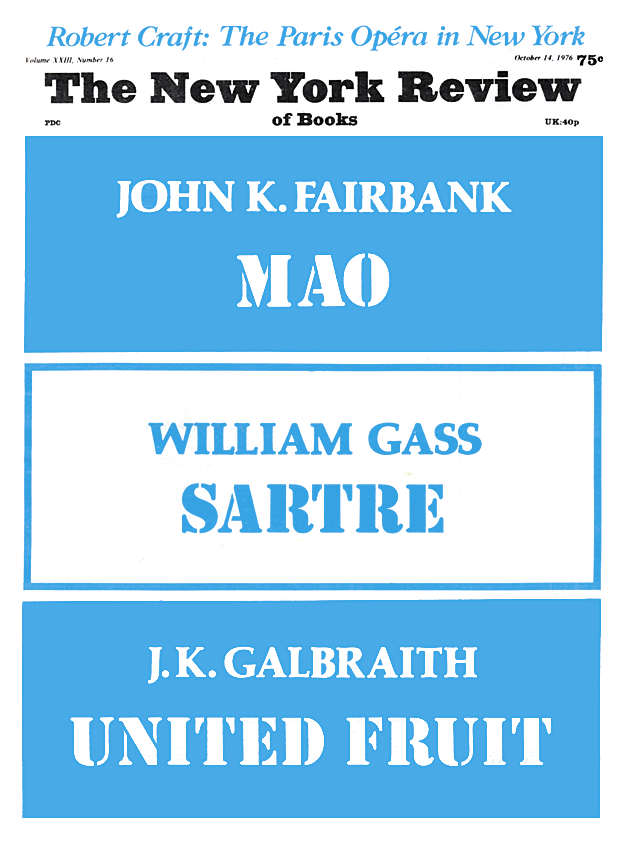In response to:
The Carter Question II: Piety and Politics from the August 5, 1976 issue
To the Editors:
I could not name two contributors to The New York Review whose work has more consistently commanded my attention and respect than Elizabeth Hardwick and Garry Wills. How astonishing, then—and how sad—I find their rhapsodic duet on “The Carter Question” [August 5], which raises none.
Mr. Wills is a serious and competent writer on religious issues; and he is favorably impressed by Mr. Carter’s evangelicism, as a major factor explaining his approach and potential appeal to the American electorate. But evangelicism—indeed, Christianity itself—must always require repentance before it can promise deliverance: not public self-castigation in the mode of a revival meeting, but a sober acceptance of the responsibility we bear for the mess we have helped make of our own lives and those of other people. Nothing could be less Christian in spirit than Mr. Carter’s assurances to the American people that only their leaders and never they themselves—undefilable in their official decency—bear any of the guilt for their country’s actions. No individual, and no nation, can grow more humane while refusing to acknowledge responsibility for what it has already become. God may forgive; but, unlike Mr. Carter, He rarely exonerates.
The Carters do, indeed, astonish, as Ms. Hardwick observes, by their sunny intrepidity. It takes a while for a face to become “wrinkled by the tracks of smiles.” How did this happen to the face of the man elected to the Georgia State Senate from one of its most bitterly segregationist districts in 1962 and who, three years later, “did not become deeply embroiled as State Senator in the explosive situation in America” (The New York Times, August 3, 1976, p. 16)? Mr. Carter is smiling still; can he be the man Bertolt Brecht mentioned who has not, even yet, heard the dreadful news? He wouldn’t have, of course, if he is the dreadful news.
I certainly do not begrudge the Carters or the nation their recent cheerfulness, which is in itself a most attractive development. I just wonder whether they may not have a rather peculiar sense of humor.
Edgar Z. Friedenberg
Halifax, Nova Scotia
This Issue
October 14, 1976


